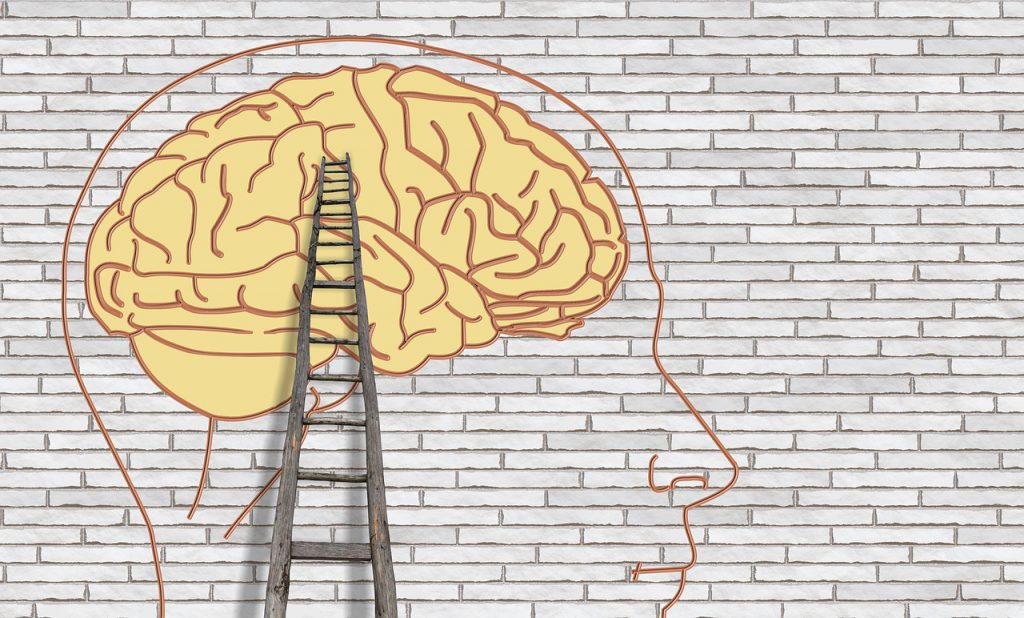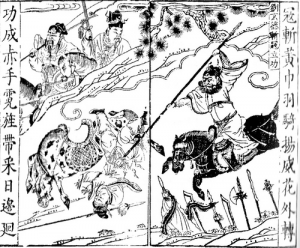“It has become a cliché to describe the human mind as at once the most complex and the most intriguing entity in the universe.”1
Every human mind is infinitely complex, but the complexity of a savant’s mind surpasses all that we know. A savant is a person who has extremely exceptional capabilities in a certain area that was originally always accompanied by some form of a mental disability. The first descriptions of savant syndrome appear in 1789. However, the term “savant” was not applied to these people who displayed unusually exceptional talent until around 1887 when J. Langdon Down, a British doctor who also discovered Down syndrome, described ten people with savant syndrome as “idiot savants.” At the time of its discovery, this was the most common term used when referencing these extraordinary people; however, Dr. Down did not like using this term and even apologized for using it. The term “savant” is derived from the French word savoir which means “to know.” To remove the negative connotation from the term, “idiot savant,” and create a way to refer to it that is not offensive, the term “savant syndrome” was adopted.2
In 1887, Dr. Down gave a series of lectures to The Medical Society of London regarding the ten cases he had studied during his thirty years of experience as a Superintendent of the Earlswood Asylum. Within these cases, there were many different characteristics of the newly discovered syndrome including extraordinary talent in musical, mathematical, artistic, or mechanical skills, all of which were accompanied by an unusually strong memory as well as with a disability. Doctors at the time were fascinated by the extreme contrast of superiority and disability in each affected individual. Many suggest that in savants with autism, the combination of their intense attention to detail can predispose them to develop specific talents.3

In some cases, savants have extraordinary talent in multiple areas instead of just one. Kim Peek was born on November 11th, 1951, in Salt Lake City Utah. As a child, many health professionals advised his parents to have Kim put in an institution because of a disability he had relating to congenital brain abnormalities.4 He was born with macrocephaly, a condition where the human head is abnormally large, as well as with damage to the cerebellum, and agenesis of the corpus callosum, a rare birth defect in which there is a partial or complete absent of the corpus callosum. He also had severe brain damage, but yet he had the ability to read two pages of a book at once, one with his left eye and the other page with his right eye. This phenomenon can be explained by Peek’s agenesis of the corpus callosum, because the corpus callosum’s main function is to physically connect and integrate motor, sensory, and cognitive performances between the brain’s two hemispheres. In other words, the corpus callosum allows the two halves of the brain to work together, but because of Peek’s condition, the two halves of his brain are able to accomplish different tasks at one time.5
However, as he continued to grow up, his parents discovered Kim’s exceptional factual recall in “history, geography, literature, music, sports, science and religion,” and many other areas. He remembers every detail about 12,000 books that he has read. He also has many other abilities including knowing what day of the week any given date falls on. Although he was unable to complete many daily tasks such as buttoning his shirt or walking properly without any assistance, he has these extremely rare and impressive abilities. Kim Peek is known by many as “a living Google” as well as the “megasavant.”6

Kim Peek later became the inspiration for the movie Rain Man, which was released in 1988. The main character in the movie, Raymond Babbitt, is a savant who also has autism.7 Rain Man is one of the most well-known movies where a main character has savant syndrome. As this condition became better known throughout the world, savant syndrome has been seen more often in the media, including in movies or television shows. Other movies that display various forms of savant syndrome include The Woman Who Willed a Miracle, Beautiful Minds, and Quantum Apocalypse. The Good Doctor is an American series based off of a South Korean series of the same name that is centered around a savant, Shaun Murphy, who is an autistic surgical resident with various extraordinary abilities. The show focuses on how Dr. Murphy’s savant capabilities, including photographic recall and the recognition of nearly every detail, contrasts and integrates with his extreme lack certain basic social skills including empathy.

The more that savant syndrome is portrayed in the media, the more often there are false assumptions made about it. The main assumption made about savant syndrome is that everyone who has it also has to have a form of autism. Many people who have savant syndrome do have autism, but there are other conditions or certain types of disorders that are seen with it. Although as many as one in ten people with autism also have savant syndrome, and approximately 50% of savant cases occur alongside a form of autism the other 50% of individuals with savant syndrome have it alongside other disabilities.8 It is also seen more often in males “by an approximate 6:1 ratio.”9 In rare occasions, savant syndrome can actually be acquired as opposed to the individual being born with it.
One of the most well-known “acquired savants” is Tony Cicoria, who was born in 1952. Cicoria is an orthopedic surgeon as well as the Chief of Orthopedics at Chenango Memorial Hospital located in Norwich, New York. In 1994, Cicoria was involved in an accident that many individuals have an irrational fear of — being struck by lightning. He was outdoors and had just hung up a public telephone. He was standing nearly a foot away from a metal pole, but then was struck by lightning. During the incident, Cicoria recalls having an out-of-body experience, seeing his own body surrounded by a “bluish-white light.” He was resuscitated at the scene of the event and was brought to the hospital, suffering from burns on his face as well as on his left foot, where the bolt had exited his body. At this time, nothing particularly unusual was found in the several tests ran by the doctor including an EEG (a test that detects electrical activity in the brain), an MRI (an imaging technique that forms pictures of the anatomy and physiological processes of the body), and a neurological exam. Around two weeks later, however, Cicoria “began to have an insatiable desire to listen to classical piano music.” A short time after acquiring a piano, Cicoria had a dream that he describes as being an “out-of-body experience.” He vividly saw himself playing piano music in a concert hall and later he realized that the music he was playing was not someone else’s music being played: it was his own.10
Cicoria states that ever since this moment, every time he sat to play at the piano, the “music would start to play in [his] head like a recording.” From then on, playing the piano and writing new music was the only thing that he could think about. Prior to being struck by lightning, Cicoria did not have any particular interest in music at all. Growing up, the only music he had an interest in was classic rock. In fact, he was enrolled in piano lessons as a child and remembers being very reluctant and disinterested in playing. Now, other than his job as an orthopedic surgeon and being a father, the piano was all he wanted to focus on and he found himself playing the piano until his “eyes could no longer focus.” Many years later in 2008, Tony Cicoria debuted his very first public concert in New York. To this day, his passion for playing the piano is still evident and he continues to compose original music.11
Over the years, many different approaches have been taken to understand the development of savant syndrome. Many psychologists and other professionals have discussed the impact of nature versus nurture on the formation of savant-like talents. According to an article written by Leon K. Miller, the mere existence of savant syndrome “has been used as evidence for both ‘nature’ and ‘nurture’ positions in the debate about the origins of exceptional skill.”12 For instance, characteristics of savant syndrome can be present from the beginning of an individual’s childhood which would provide evidence for the viewpoint that this level of talent is mostly developed through nature. However, there have been cases of savants who obsessively practice their skills over the course of their lives which provides evidence that this level of talent is developed through nurture.13 These concepts become even more complex when taking into account situations such as Tony Cicoria’s; the specific reasons for the development of savant syndrome, whether it be due to nature, nurture, or a mixture of both, are still being studied to this day.

Since the first discussions of its discovery in 1887, much progress has been made by medical professionals in the understanding of savant syndrome. Whether it is present in an individual since birth, as seen in Kim Peek’s case, or acquired through damage to the CNS or an accident, as seen in Tony Cicoria’s case, it continues to be a phenomenon that repeatedly shocks the world. Dr. Down was incredibly dedicated in the discoveries he made regarding Savant syndrome as well as Down syndrome and many learning disabilities. His house, which also doubled as the institution in which he worked during the 1800s, has since been converted into the Langdon Down Museum of Learning Disability, which today exhibits much of Dr. Down’s work and discoveries. His dedication toward studying savant syndrome has inspired research to continue to this day.
- Neil Smith and Ianthe-Maria Tsimpli, The Mind of a Savant (Massachusetts: Basil Blackwell Inc., 1995), XV. ↵
- Laurence Arnold, “The Social Construct of the Savant,” Autonomy, the Critical Journal of Interdisciplinary Autism Studies 1, no. 2 (2012): 1-6. ↵
- James E A. Hughes, Jamie Ward, Elin Gruffydd, Simon Baron-Cohen, Paula Smith, Carrie Allison, Julia Simner, “Savant syndrome has a distinct psychological profile in autism,” Molecular Autism 9, no. 1 (2018): 1-18. ↵
- Darold A. Treffert, Islands of GENIUS (Philadelphia: Jessica Kingsley Publishers, 2010), XIII. ↵
- Darold A. Treffert, “The savant syndrome: an extraordinary condition. A synopsis: past, present, future,” Philosophical transactions of the Royal Society of London 364, no. 1522 (2009): 1351-1357. ↵
- Darold A. Treffert, Islands of GENIUS (Philadelphia: Jessica Kingsley Publishers, 2010), XIII. ↵
- Darold A. Treffert, Islands of GENIUS (Philadelphia: Jessica Kingsley Publishers, 2010), XIII. ↵
- Darold A. Treffert, “Savant Syndrome: Realities, Myths, and Misconceptions,” Journal of Autism and Developmental Disorders 1, no. 1 (2014): 564-5571. ↵
- Darold A. Treffert, “The savant syndrome: an extraordinary condition. A synopsis: past, present, future,” Philosophical transactions of the Royal Society of London 364, no. 1522 (2009): 1351-1357. ↵
- Tony Cicoria, “The Electrifying Story of The Accidental Pianist & Composer,” Missouri Medicine: The Journal of the Missouri State Medical Association 111, no. 4 (2014): 308. ↵
- Tony Cicoria, “The Electrifying Story of The Accidental Pianist & Composer,” Missouri Medicine: The Journal of the Missouri State Medical Association 111, no. 4 (2014): 308. ↵
- Leon K. Miller, “What the Savant Syndrome Can Tell Us About the Nature and Nurture of Talent,” Journal for the Education of the Gifted 28, no. 3-4 (2005): 361-362. ↵
- Leon K. Miller, “What the Savant Syndrome Can Tell Us About the Nature and Nurture of Talent,” Journal for the Education of the Gifted 28, no. 3-4 (2005): 361-362. ↵




50 comments
Sara Guerrero
It was interesting to learn about Savant Syndrome and what it means in society and wouldn’t have imagined it would involve special talents. This shows that children born with disabilities still have an equal and better chance of showing talent in their own specific way. They should definitely be encouraged to find their special talent and society is definitely changing for the better to include them on a day to day basis. Great article.
Glory Turnbull
Really nice article! Not every autistic or otherwise differently abled person is a savant, but their skills, personalities, and interests contribute to our society– no two people are just alike! My mother worked for several years teaching special needs children in elementary school, and would come home every day talking about how amazing and bright her students were, each in their own way. Just because not everyone can contribute in a way that drives profits doesn’t mean they can’t contribute at all. This piece is really great.
Michelle Felan
Thank you Bella for the extraordinary article written about Savant Syndrome. What’s more interesting about the article is how rare & non mainstream the topic regarding Savant Syndrome truly is. And wow, you are here in my hometown of San Antonio which is incredible as not many here are familiar with the subject. Just as everyone here in the comments section was oblivious to what Savant Syndrome truly was or is, I must admit that I never knew that such Syndrome existed unit it happened to me in 2016. My ability as an Sudden Savant Artist Suddenly emerged overnight & this is when I obsessively began to draw at a prodigious level on a daily basis 8 hours or more if possible. Prior to this, I couldn’t draw a stick figure even if my life depended on it. So much to be said here… all I can say is thank you for sharing this pertinent information. If it wasn’t for Dr.Treffert & his extensive research, I’m not sure that I would of ever known what had truly transpired for me. I am embracing myself with my gift each & every moment:) Thank you again, Michelle Felan
Kasandra Ramirez Ferrer
It is great that now days we can inform ourselves in great detail about whatever we want, and this article helps us do that, I personally find it very educational, since not a lot of people are related with the Savant Syndrome. It really shows and explains what it really is about and how there is actual people that have it and what they have to go through everyday of their lives.
Cynthia Perez
Great article that shared something new to me. I never heard of Savant Syndrome where people excel in a multitude of areas, or in some cases they do. With such great memory is especially interesting that people with this need aid in doing or completing everyday tasks. Savant syndrome used to be something viewed negatively but it’s wonderful that it became something extraordinary with it’s usefulness and efficiency to a person who has it.
Nelly Perez
This is the first that I hear about savant syndrome. I feel like this was a not discussed topic, but with the author writing about it, I got a better understanding of the syndrome. What helped was the explanation of each medical term. Kim became an inspiration for the media because of his story. As for The Good Doctor, I know that it’s become popular and I did not know that the main character was kind of portraying the syndrome and autism as well. The media could portray things differently but the originals do not change.
Angely Noriega Baron
I never heard about savant syndrome until I read your article! It was very well explained how many different approaches have been taken to understand the development of savant syndrome. For example, I didn’t know that characteristics of savant syndrome can be present from the beginning of an individual’s childhood which would provide evidence for the viewpoint that this level of talent is mostly developed through nature.
Cassandra Sanchez
I never really knew that this was actually called savant syndrome, I have just heard about people who had incredible abilities. It is interesting to read about people with this syndrome and about their many extraordinary talents. It is also cool to learn about how talented they are but find it difficult to perform basic tasks. This article explained more about savant syndrome and gave me a better understanding of it.
Cristianna Tovar
Congratulations on your nomination, Bella! Before reading your article, I didn’t know what Savant Syndrome was, but you did an excellent job of explaining the history of it and how medical professionals now have a better understanding of it. I think Savant Syndrome is very interesting because it surpasses everything we know about the human mind. Best of luck at the awards ceremony!
Malik Heard
I became interested in this article because I have heard about servant syndrome before in shows like the good doctor and thought it was really interesting.This article gave a lot of information and made me more informed on the topic and it was a fun read .All the famous people with the syndrome sound cool because of the things they can do.